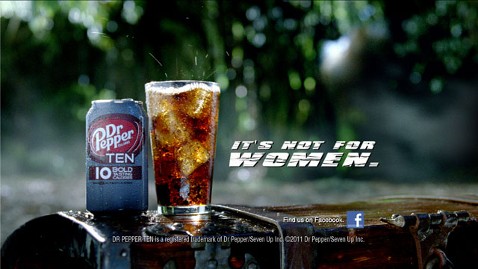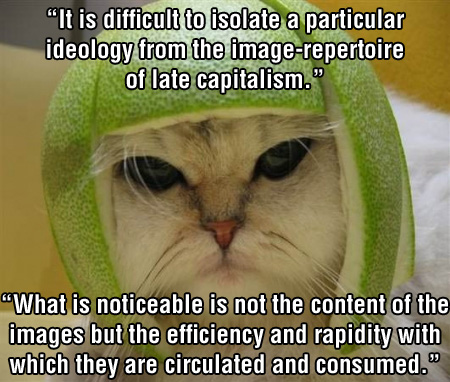New York Magazine recently published a profile of BuzzFeed’s founder Jonah Peretti which details the Peretti and his viral media success. Within the lengthy article is one point of interest, Jonah Peretti’s published work on advertising and Deleuze.
BuzzFeed is a site dedicated to aggregating lists of lolcats and cute pictures of puppies. The New York article describes the whole thing as a “reverse mullet” business. Party (lolcats) in the front, business (real content) in the back. It’s a great place to kill time and brain cells if you’re into watching the world of Ray Bradbury’s Fahrenheit 451 become a reality. Among today’s articles are: “Thirteen Reasons Shakira Should be President of The World” and “23 of the Best Sloth Tattoos of All Time.”
So you might be surprised to know that the genius behind it all once wrote an article about Gilles Deleuze, Fredric Jameson, queer theory and the commodification of the internet. New York’s Andrew Rice describes the surprise of the viral mastermind’s background
Peretti makes for an unlikely adman. He was raised in an atmosphere of East Bay liberalism, the son of a Berkeley professor and a criminal-defense attorney, and in his twenties he was something of an armchair anti-consumerist. He read Adbusters and Harper’s, and published a dense academic treatise about advertising and “resisting the logic of late capitalism” in a journal called Negations.
It reminds me of the Dr. Pepper 10 ad campaign, which I’m convinced was made by a gender studies student gone awry. You see, advertisers realized men thought diet drinks were feminine and for girly men. So they came up with this:

So that begs the question, did the creator of BuzzFeed get his inspiration for a viral marketing machine from philosophers like Gilles Deleuze? In his article published in Negations, Peretti writes:
My
central contention is that late
capitalism not only accelerates the
flow of capital, but also
accelerates the rate at which
subjects assume identities. Identity formation
is inextricably linked to the
urge to consume, and therefore
the acceleration of capitalism necessitates
an increase in the rate
at which individuals assume and
shed identities. The internet is
one of many late capitalist
phenomena that allow for more
flexible, rapid, and profitable mechanisms
of identity
formation.
And he said this:
Peretti goes on to deride MTV for its “rapid fire succession of signifiers.” Not so unlike those GIF-loaded posts on BuzzFeed.
In many respects the
media culture of the late
twentieth century simulates schizoid experience.
The rapid fire succession of
signifiers in MTV style media
erodes the viewers sense of
temporal continuity. To use the
same words that Jameson uses
to describe schizophrenic experiences, the
images that flash across the
MTV viewers’ retina are “isolated,
disconnected, discontinuous material signifiers which
fail to link up into
a coherent sequence.”
The real genius of BuzzFeed, according to New York, is its ad model. BuzzFeed has no banner ads. Rather, sponsored content is merged seamlessly into regular content. That “13 Reasons Shakira Should Be the President of The World” could very well be a paid advertisement by Shakira’s record label. Peretti writes:
In order for an
advertisement in GQ
to be successful, it must
provoke an ego formation that
makes the product integral to
the viewer’s identity. This fragile
ego formation must persist long
enough for the GQ
reader to purchase the
product.
And then this:
Could this have been his starting point in his plan to make his millions? Has the integration of social networks, sharing, and advertisement created this ego formation for the sake of capital? Or, is Peretti a subversive genius who is using Buzzfeed to destroy our mode of production. Even the New York article begs the question: does this Buzzfeed ad model create sales? Peretti’s article leaves open the possibility that Buzzfeed is one giant resistance.
One example is the
“Slacker” phenomena. These media-savvy youth
consume the accelerated visual culture
of late capitalism, yet do
not develop ego formations that
result in consumer shopping. It
is as if the light
and sound from the television
is sufficient to satiate their
desire. Actual products become superfluous
the media itself is the
final object of consumption. This
refusal to consume defuses the
capitalist media’s efforts to accelerate
the process of identity formation/
dissolution and capital accumulation.
Read the Peretti article here and his profile in New York here.



